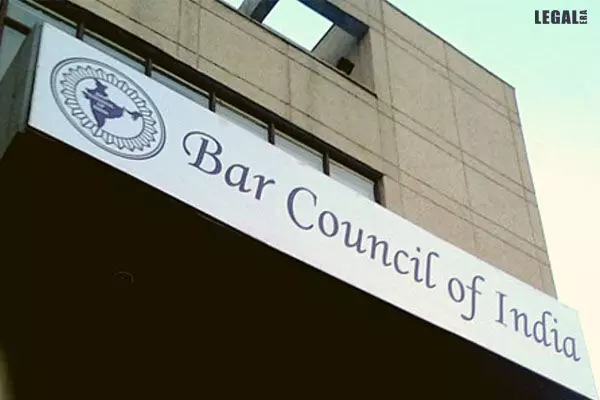- Home
- News
- Articles+
- Aerospace
- Artificial Intelligence
- Agriculture
- Alternate Dispute Resolution
- Arbitration & Mediation
- Banking and Finance
- Bankruptcy
- Book Review
- Bribery & Corruption
- Commercial Litigation
- Competition Law
- Conference Reports
- Consumer Products
- Contract
- Corporate Governance
- Corporate Law
- Covid-19
- Cryptocurrency
- Cybersecurity
- Data Protection
- Defence
- Digital Economy
- E-commerce
- Employment Law
- Energy and Natural Resources
- Entertainment and Sports Law
- Environmental Law
- Environmental, Social, and Governance
- Foreign Direct Investment
- Food and Beverage
- Gaming
- Health Care
- IBC Diaries
- In Focus
- Inclusion & Diversity
- Insurance Law
- Intellectual Property
- International Law
- IP & Tech Era
- Know the Law
- Labour Laws
- Law & Policy and Regulation
- Litigation
- Litigation Funding
- Manufacturing
- Mergers & Acquisitions
- NFTs
- Privacy
- Private Equity
- Project Finance
- Real Estate
- Risk and Compliance
- Student Corner
- Take On Board
- Tax
- Technology Media and Telecom
- Tributes
- Viewpoint
- Zoom In
- Law Firms
- In-House
- Rankings
- E-Magazine
- Legal Era TV
- Events
- Middle East
- Africa
- News
- Articles
- Aerospace
- Artificial Intelligence
- Agriculture
- Alternate Dispute Resolution
- Arbitration & Mediation
- Banking and Finance
- Bankruptcy
- Book Review
- Bribery & Corruption
- Commercial Litigation
- Competition Law
- Conference Reports
- Consumer Products
- Contract
- Corporate Governance
- Corporate Law
- Covid-19
- Cryptocurrency
- Cybersecurity
- Data Protection
- Defence
- Digital Economy
- E-commerce
- Employment Law
- Energy and Natural Resources
- Entertainment and Sports Law
- Environmental Law
- Environmental, Social, and Governance
- Foreign Direct Investment
- Food and Beverage
- Gaming
- Health Care
- IBC Diaries
- In Focus
- Inclusion & Diversity
- Insurance Law
- Intellectual Property
- International Law
- IP & Tech Era
- Know the Law
- Labour Laws
- Law & Policy and Regulation
- Litigation
- Litigation Funding
- Manufacturing
- Mergers & Acquisitions
- NFTs
- Privacy
- Private Equity
- Project Finance
- Real Estate
- Risk and Compliance
- Student Corner
- Take On Board
- Tax
- Technology Media and Telecom
- Tributes
- Viewpoint
- Zoom In
- Law Firms
- In-House
- Rankings
- E-Magazine
- Legal Era TV
- Events
- Middle East
- Africa
Supreme Court: BCI Cannot Collect High Enrolment Fee in Guise of ‘Welfare Scheme’

Supreme Court: BCI Cannot Collect High Enrolment Fee in Guise of ‘Welfare Scheme’
The Supreme Court issued notice on a transfer petition filed by the Bar Council of India seeking to transfer to the Supreme Court the petitions pending in the High Courts of Kerala, Madras and Bombay challenging the enrolment fee charged by State Bar Councils.
The bench comprising of Chief Justice of India (CJI) DY Chandrachud, Justices PS Narasimha and Manoj Misra orally expressed concerns at the enrolment fee rates.
Senior Advocate Manan Kumar Mishra, the Chairperson of the BCI, submitted that the fees charged by Bar Councils covered various expenses and welfare measures.
However, the CJI remarked that high enrolment cannot be charged under the guise of welfare scheme.
Thereafter, the bench issued notice in the transfer plea of the BCI.
Though Advocate Mishra sought for an order to stay the proceedings in the High Court, the bench declined.
The CJI orally said that once the Supreme Court issues notice on the transfer petitions, High Courts generally keep the proceedings in abeyance.
In its petition, the BCI submitted that the pleas before various High Courts deal with substantially the same questions of law relating to the constitutional validity of fees chargeable at the time of advocates' enrolment.
The BCI further emphasised that transferring the petitions would prevent the wastage of judicial time and that the matter could be authoritatively decided by the Apex Court. The plea has been filed through M/s Ram Sankar & Co.
The transfer petition was filed in response to a Kerala High Court order, passed last June, directing the Bar Council of Kerala (BCK) to collect a reduced enrolment fee of Rs. 750 only from law graduates who wished to enrol as advocates, until the BCI lays down a uniform fee structure applicable to all State Bar Councils.
A single-judge of the High Court had earlier passed an interim order in February, directing the BCK to provisionally accept enrolment applications by the law graduates before it upon the payment of Rs. 750.
The benefit of the February order was limited only to the petitioners in the case who had challenged the BCK's decision to collect Rs. 15,900 as enrolment fees.
The BCK filed an appeal against the interim order before a division bench.
When the appeal came up before Chief Justice SV Bhatti and Justice Basant Balaji on June 12, the High Court division bench extended the benefit of the single judge's order to all law graduates wishing to enrol in the State.
Correspondingly, a petition challenging the notification issued by the Bar Council of Maharashtra and Goa (BCMG) enhancing enrolment fees to Rs. 15,000, which was made effective from January 2020, is pending before the Bombay High Court.
In recent development, the BCI had informed the Punjab and Haryana High Court that it would take necessary steps to deal with the issue of exorbitant enrolment fees charged by State Bar Councils.
Notably, earlier this year, the Apex Court had sought responses from State Bar Councils on a plea challenging the non-uniform and exorbitant enrolment fees collected by different State Bar Councils.
A bench of CJI DY Chandrachud and Justice PS Narasimha and JB Pardiwala had observed that the issue was important while granting the petitioner liberty to serve a copy of the petition on the BCI.



